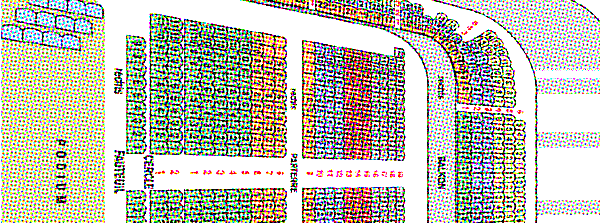 Austria Liederabend: Justus Zeyen (piano), Michael Schade (tenor), Mozart Saal, Wiener Konzerthaus, Vienna, 7.6.2014 (RNa)
Austria Liederabend: Justus Zeyen (piano), Michael Schade (tenor), Mozart Saal, Wiener Konzerthaus, Vienna, 7.6.2014 (RNa)
Mozart: Die ihr des unermesslichen Weltalls Schöpfer ehrt K.619, Die Zufriedenheit K.473 (1785)
Beethoven: Der Wachtelschlag WoO 129, Zärtliche Liebe WoO 123, Neue Liebe, neues Leben op. 75/2
Haydn: The Wanderer Hob. XXVIa/32, Pleasing Pain Hob. XXVIa/29, Fidelity «Die Treue» Hob. XXVIa/30, Sailor’s Song Hob. XXVIa/31
Joseph Marx: Sommerlied, Nocturne, Maienblüten
Richard Strauss: Frühlingsgedränge op. 26/1, Freundliche Vision op. 48/1, Du meines Herzens Krönelein op. 21/2, Ach Lieb, ich muss nun scheiden op. 21/3, Allerseelen op. 10/8, Befreit op. 39/4
Hugo Wolff: Mörike-Lieder: Der Gärtner, Verborgenheit, Bei einer Trauung, Abschied

A Liederabend-review of Michael Schade some ten years ago in the Washington Post yielded a sentence that could be recycled at no loss of validity for his recent Liederabend at the Wiener Konzerthaus’ beautifully suited Mozartsaal: “His instrument is strong, very focused and clean, and almost piercing, and with it he conducts precision operations in music. What I missed was a bit more [of an] inviting, open quality.”
I, for one, don’t miss it anymore, because I know not to expect it with Schade. That expectation management works very well towards making a Schade recital more enjoyable. His voice sounds ever like a trumpet and displays finer shades only rarely, and only when he steps off the pedal. Liking it or not is a subjective thing, because it’s an objectively excellent trumpet and it was certainly in fine fettle this Thursday night at the Konzerthaus. It was wasted, granted, on Mozart’s “Die ihr des unermesslichen Weltalls Schöpfer ehrt”. The rightly forgotten work is an agnosticism-spirited Freemason mini-cantata that hints of Beethoven here, of Mozart there, even of proto-Schubert… yet the best thing that can be said about it is that it’s an aria of Sarastrian wisdom paired with the lyricism of a Tamino (so Schade). Schade is not a natural Tamino, however, the text not all that clever, real drama missing completely, and if Mozart spent more than five minutes on the piano part, he was taking it easy that day. Poor pianist/accompanist Justus Zeyen. More fun was the follow-up Mozart Lied “Die Zufriedenheit”… followed in turn by Beethoven’s “Der Wachtelschlag” (more trumpeteering) and two of Beethoven’s finest Song-moments: “Ich liebe dich” (with a creative and effective ritardando before the last stanza, and a fine pianissimo) and the ‘everything-is-happening-at-once’ “Neue Liebe, neues Leben” which was vivaciously performed.
  L.v.Beethoven, F.Schubert, Lieder, F.Wunderlich / H.Giesen DG Originals     |
Haydn songs followed, which retain much charm because of Haydn’s intimate acquaintance with Scottish songs (which he had transcribed by the hundreds). But unfortunately that doesn’t make Anne Hunter’s dreadful poems any better… set by Haydn as a gracious gesture to his host’s wife but not, one hopes, because he saw any literary merit in them. Tellingly, the funnest of the Haydn songs, by far, was the anonymously composed Sailor’s Song. Now Schade didn’t bring a particularly sailor-like demeanor to his rendition, but it wasn’t without dramatic and entertaining qualities as he belted the thing with vigor and whim.
The music of Joseph Marx, “Third Viennese School” as I like to call the largely forgotten 20th century late-romantic strain of music, is not the deepest among this group, but it certainly contains the most sugar and cream and a wistful ‘memories-of-a-Vienna-past’ kind of pathos (a Vienna that never likely existed outside people’s imagination) that makes them gorgeous and endearing. Schade may have approximated the text all night long, but not Haydn nor these Marx songs cared. Justus Zeyen finally really got to show his qualities in “Sommerlied”, “Maienblüten”, and especially the “Nocturne”. Richard Strauss is a natural pairing for Marx, but the tendency for equating emotion: pain, longing, love et al. with sheer loudness wasn’t my cup of tea… especially not in “Befreit”. The singing protagonist remembers his departed wife and all I thought was: “Don’t yell at her, man. She’s dead, not deaf.”
It was left to the often thorny Hugo Wolf to enchant again; “Der Gärtner”, “Verborgenheit”, and “Bei einer Trauung” are three of the most pleasing Wolf-works, with a grateful beauty-to-gnarly ratio. And the last is genuinely hilarious: riotously written by Eduard Mörike, enhanced by Wolf, and splendidly played up by Schade. Only the Wolf-evergreen “Abschied” isn’t half as funny as it desperately tries to be… or at least it’s over-played and has become tired. Still, it didn’t fail to amuse the completely sold out Mozartsaal.
For the encores, I found another half sentence in that Post review to aptly describe the Mozart (“Komm, liebe Zither” K 367b) and Richard Strauss (“Morgen” and “Zueignung”) that followed: “…and suddenly Schade showed subtleties and pianos and his tone seemed perfectly suited [to the music].” More of that!
Rune Naljoss